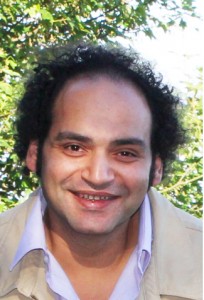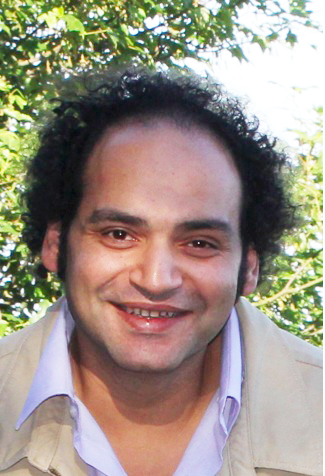
For the past 10 years, Egypt has been reminded at least annually of its sectarian time bomb. If your only source of information were Egyptian media, sectarianism would be the work of a radical few, but never a serious problem inherent within Egyptian Society. But if you take a closer look at the lives of Egyptians and the way they are socialised since they were young, you would find the real roots of Egypt’s sectarianism scattered here and there. It doesn’t matter how hard the state tries to deny it; the media tries to picture it as a storm in a teacup, there are several beliefs spread around Egyptian Society that feed sectarianism and ensure its ongoing existence.
Religion in Egypt is seen through the eyes of superiority and inferiority; we are taught in this society that religion makes us different. For some stupid reason we teach religion in schools here in Egypt, so ever since you’re seven or eight years old, you realise that there is a time where you and your classmates are separated because of the difference in religion since Muslims go into a class and Christians into another. You are taught since you were a child that your religion is the ultimate truth and you are probably taught to be sarcastic of other religions as well. There is a very famous genre in Egyptian jokes that centres on a sheikh and a priest. If you hear a Muslim tell it, the punch line is indeed making fun of the priest and vice versa.
Although some people may try to deny it, I bet that every Egyptian knows at least one person who openly discriminates on the basis of religion. How many Muslims do you know who would not go to a Coptic doctor? Muslims who would never apply for their children in a church-related school although they are known to be efficient and reasonably priced? There is a strange sense of solidarity among Egyptian Muslims as well as Egyptian Copts; it is like we are in a constant battle for survival. By the time this solidarity is reflected on the level of the state, you find an obvious exclusion of Egyptian Copts from key positions. This fragile social reality that Egypt lives under requires clear-cut laws of citizenship and a legislative framework that would ensure social equality and the absence of religious discrimination.
However, instead of working towards issuing such laws, former president Hosni Mubarak’s regime worked to reach a formula with which to manage the religious diversity in Egypt. Mubarak’s formula worked at times, but it never addressed any core issues, simply delaying clashes to buy the regime some time. Despite Mubarak’s formula, clashes would still sometimes erupt between Muslim and Copts. The Mubarak regime used a number of institutions to manage the religious diversity in Egypt.
The first institution was the security institution. Mubarak’s infamous security apparatus known as “State Security” had a department called “Religious Affairs”. The role of this department was to make sure that religion is used in a way that the regime approves of, without radicalisation and sectarian provocation.
The second were the religious institutions of Islam and Christianity, the Coptic Church and the Al-Azhar. The state maintained close ties with the church and more than once tampered with the position of Al-Azhar on different issues. The two institutions were used whenever possible to diffuse sectarian tensions.
Finally, there was an arsenal of norms and values and customary laws that the state would use through various agents to deal with sectarian tensions without necessarily drafting a specific law. With the collapse of the State Security institution, the change in leadership of the Coptic Church and the obvious divisions within the Al-Azhar, the old formula can no longer function. Between the utter failure of Mubarak’s religious diversity formula and President Mohamed Morsi’s failure to reach a new formula or work towards drafting citizenship laws, sectarianism remains an ongoing and ever-growing threat to Egypt.
Unfortunately, the already contentious state of religious diversity in Egypt was made even worse by Morsi’s administration and the Islamisation mania that’s been washing over Egyptian society for the past two years. For some reason, until today and after almost 10 months in office, Morsi has not visited one church. He did not even attend the coronation of the newly elected pope Tawadros II. During last Ramadan Morsi did a Presidential Prayer Tour in different mosques where he commonly talked about politics (although religion and politics don’t mix), but he never attempted to meet the leaders of the Coptic Church, the church to which millions of Egyptians belong. Would being seen in a church diminish Morsi’s legitimacy? Would it anger some of the Salafists and the Muslim Brotherhood members? Or is it simply not the responsibility of the president to reach out to the Copts of Egypt? It is shameful the president is practicing religious discrimination.
It is time that we stop worrying about taking pictures of sheikhs and priests shaking hands or hugging or smiling. It is time we acknowledge the bitter reality of our society; the roots of discrimination should be fought from below. It is also the time to stop being happy with a few statements from the president ensuring that Muslims and Copts are one and the same and they are all Egyptians. We don’t need these sentiments or photographs of sheikhs and priests nor are we looking for Presidential supervision of religious diversity. What we need is to first reform our education system that teaches students how different they are. Instead of teaching religion in schools, we need to teach our children proper ethics, principles that originate in humanity and not in divine doctrines. Second, we need an administration that has the political will to work with the legislative councils on citizenship laws and religious discrimination laws. If we just keep on dealing with the side effects of sectarianism without reaching the core of the issue, it will not be long before sectarian strife and religious fanaticism take Egypt further down.



